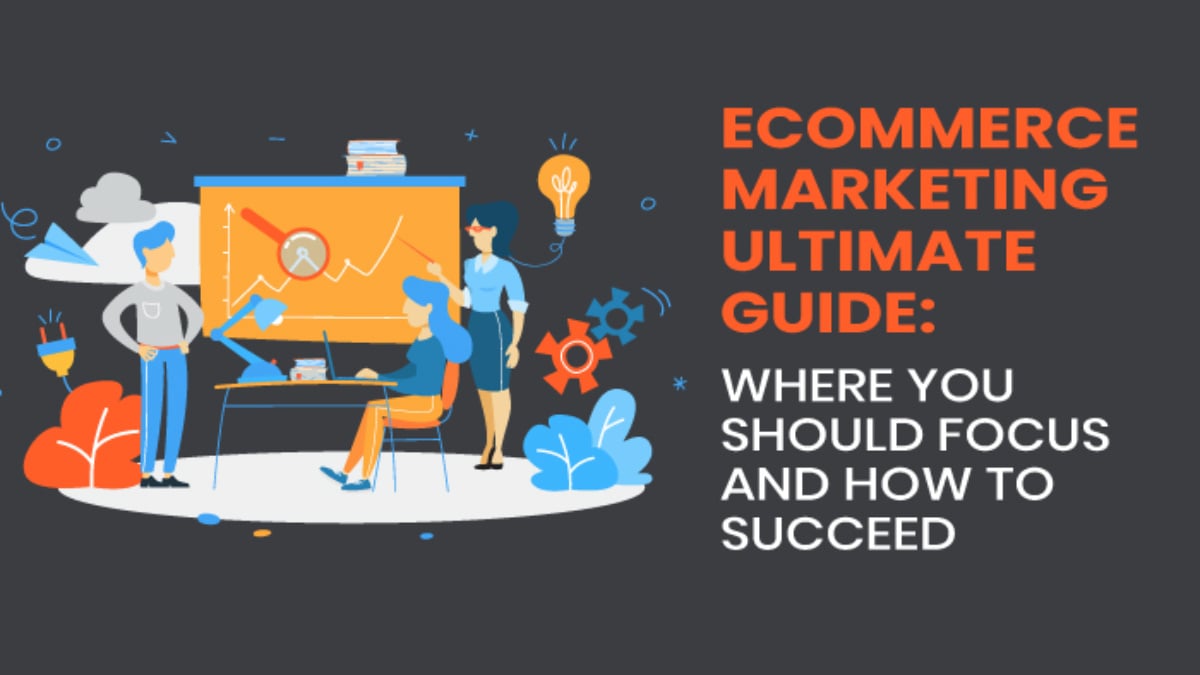The digital marketplace is expanding at an unprecedented pace. With online shopping becoming a norm, businesses of all sizes are investing heavily in e-commerce to reach customers worldwide. But success in this crowded space isn’t guaranteed—it depends on more than just having great products or a functional website. A smart marketing strategy is essential, and that’s where an e-commerce marketing agency comes into the picture.
The challenge for many businesses isn’t whether to hire an agency, but how to choose the right one. The right partner can help your online store grow sustainably, while the wrong choice may waste time, money, and opportunities. In this blog, we’ll explore what factors to consider when choosing an e-commerce marketing agency and how the right decision can drive long-term business success.
1. Understanding What an E-Commerce Marketing Agency Does
Before choosing an agency, it’s important to understand its role. An e-commerce marketing agency specializes in strategies that drive visibility, engagement, and conversions for online businesses. Unlike general marketing firms, these agencies focus on the nuances of digital commerce, such as:
- Search engine optimization (SEO) for product listings and category pages.
- Paid advertising on Google, Meta, or marketplaces like Amazon.
- Social media marketing to build communities and brand trust.
- Email campaigns and customer retention strategies.
Knowing what an agency does helps businesses align their needs with the expertise offered.
2. Aligning Goals with Agency Expertise
Every business has unique goals. Some want to increase sales quickly, while others focus on building brand recognition or improving customer loyalty. The right e-commerce marketing agency should be able to align its strategies with your specific objectives.
For example:
- If your focus is organic growth, look for agencies with strong SEO experience.
- For quick conversions, prioritize those with proven paid advertising success.
- For long-term relationships, seek agencies skilled in email marketing and loyalty programs.
Defining your goals clearly ensures you don’t end up with a one-size-fits-all approach.
3. Evaluating Industry Experience
Not all agencies are familiar with every industry. An e-commerce marketing agency that understands your niche—whether it’s fashion, electronics, beauty, or food—can bring tailored insights that save time and effort.
Agencies with industry experience are better equipped to:
- Identify customer behavior patterns.
- Predict seasonal trends.
- Craft content and ads that resonate with your audience.
Industry knowledge reduces the learning curve and increases the chances of success.
4. Checking Track Records and Case Studies
A reliable e-commerce marketing agency should be transparent about past work. Case studies, client testimonials, and performance metrics can provide valuable insights into how an agency operates and delivers results.
When evaluating an agency, ask questions like:
- What results have you achieved for businesses like mine?
- How do you measure campaign success?
- Can you provide examples of long-term client partnerships?
This not only builds trust but also sets realistic expectations for outcomes.
5. Assessing Communication and Transparency
Good marketing partnerships thrive on clear communication. An e-commerce marketing agency should provide regular updates, performance reports, and honest feedback. Avoid agencies that overpromise quick results without explaining their strategies.
Transparency builds accountability. Businesses should expect:
- Clear breakdowns of budget allocation.
- Straightforward reporting on KPIs like conversion rates or ROI.
- Open discussions about challenges and solutions.
Strong communication ensures that you remain actively involved in the decision-making process.
6. Considering Tools and Technology
The digital landscape evolves quickly, and agencies that keep up with the latest tools and technologies deliver better results. A good e-commerce marketing agency often uses advanced tools for analytics, automation, and campaign optimization.
For example:
- SEO platforms like SEMrush or Ahrefs for keyword tracking.
- Ad management tools for testing and scaling campaigns.
- CRM systems for customer engagement and retention.
When agencies leverage the right technology, businesses benefit from efficient and data-driven strategies.
7. Weighing Cost Against Value
Cost is often a deciding factor, but it shouldn’t be the only one. Choosing the cheapest e-commerce marketing agency may save money upfront but could lead to underwhelming results. Instead, focus on value—what services, expertise, and outcomes the agency offers for its fee.
Think of it as an investment: the right agency should generate returns that outweigh the cost.
Conclusion
In today’s competitive digital market, choosing the right e-commerce marketing agency can make or break your online business. From aligning goals with expertise to assessing communication, tools, and industry knowledge, every factor matters in building a strong partnership. The right agency doesn’t just deliver campaigns—it becomes a growth partner, helping your business navigate challenges and seize opportunities.
Making this choice thoughtfully ensures that your investment in digital marketing leads to sustainable success, not just temporary wins.
FAQs
Q1: What should I look for first when choosing an e-commerce marketing agency?
Start with defining your goals, then look for agencies that have experience and proven success in those areas—whether it’s SEO, paid ads, or customer retention.
Q2: How do I know if an agency has experience in my industry?
Ask for case studies or client references related to your industry. An agency familiar with your niche will understand your audience better.
Q3: Are smaller agencies less effective than larger ones?
Not necessarily. Smaller agencies may offer more personalized attention, while larger ones may bring broader resources. The key is finding a good fit for your needs and budget.
Q4: How important is transparency in working with an e-commerce marketing agency?
Very important. Clear communication and transparency about strategies, budgets, and results ensure accountability and trust in the partnership.
Q5: Can hiring an e-commerce marketing agency guarantee success?
No agency can guarantee specific results, but a skilled agency increases your chances of success significantly by applying data-driven and industry-tested strategies.


